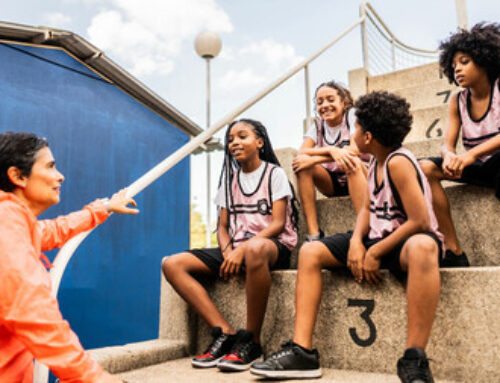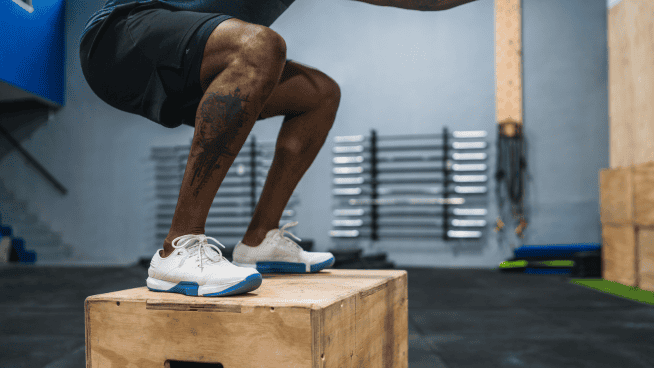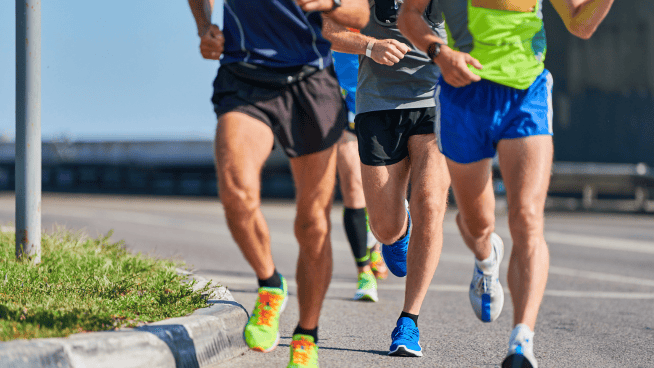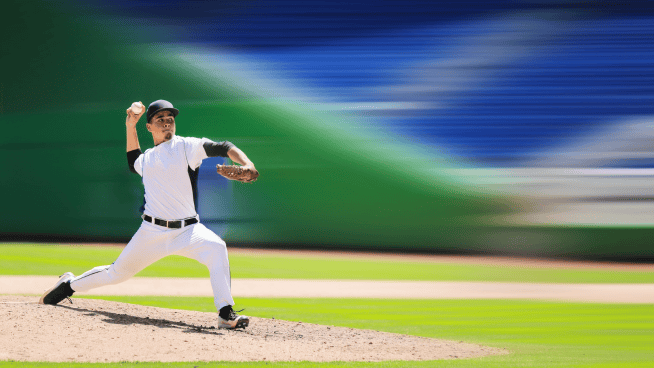How Ruben Martin Became the No. 1-Ranked USA Judo Heavyweight
When I first met Ruben Martin (@rubenspartanmartin) a couple of years ago, he was teaching judo to elementary school students at Bridgeport Catholic Academy, located on Chicago’s South Side. My daughter—in preschool at the time—was part of the after-school judo program and I was helping instruct the class.
Ruben was 25 years old and looked like an athlete. He was 5-9 and a strong 175 pounds, with a body that had been conditioned from decades of throwing people on the ground. Although young, Ruben was a judo veteran, competing internationally since his childhood and earning black belts in judo, Japanese jiu-jitsu, and hanbo-jitsu. His father, Ruben Martin Sr., is well-known in the judo community and has his own academy in Burleson, Texas. His mother, “Dazzling Denise,” was a professional wrestler. Basically, grappling is in Ruben’s blood, with high-level parental pedigree.
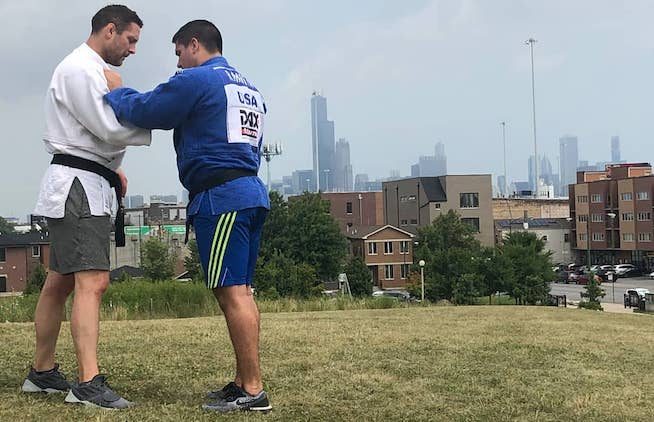
Ruben Martin, right, with trainer Brian Kent, had a plan to bulk up and compete in the heavyweight division with the goal of reaching the 2020 Olympics in Tokyo.
I was initially impressed with Ruben’s teaching ability. He ran a tight, disciplined class and held the kids accountable. As we got to talking, I learned that Ruben was pretty accomplished for a young man—married to Brianna; had already earned his Master’s Degree in kinesiology; and was working as a personal trainer. Judo was the reason that Ruben and Brianna moved to Chicago; to leave behind his Texas comfort zone, gain access to more training partners and improve his preparation. The goal was to make the Olympics. (Tokyo, Japan—the host for the 2020 Summer Games—iconically, is the birthplace of judo.)
Most of his career, Ruben had been cutting weight and fighting at 66kg (145 pounds), 73kg (160 pounds) and 81kg (178 pounds) with inconsistent success. By “inconsistent,” I mean that he had some international success and was on USA Judo’s (@usajudoofficial) radar, but could never crack the No. 1 ranking in any of his weight classes. Ruben was second or third on the depth chart, and knew that he needed to make some major changes if he was to become an Olympian.
Recognizing that Ruben was a motivated, talented athlete, I casually asked him about his training. Although the Chicago judo community is tight—and I had friends that knew him—my relationship with Ruben was brand new. We had not crossed paths on the mat or in the gym; he did not know me and I did not know him. But it was clear there was passion in his voice as he described his goals and his expectations.
Although I had offered my help as a performance coach, Ruben had resisted and explained that he had himself on a strict strength training program and politely declined my invitation. Ruben would later admit that there was one piece of information that I shared with him to make him reconsider working with me. After hearing that he had injured himself in the gym a week before a European tournament, I reminded him that “the best ability is availability.” Somehow that stuck in his head.
Right around this time, Nike celebrated the 30th anniversary of their Just Do It campaign, with commercials geared toward “Crazy Dreams” and “it’s only crazy until you do it.” So, when Ruben approached me with his vision to gain 50 pounds and jump up three weight classes to +100kg (220-plus pounds), I thought he was crazy. Like, clinically insane.
Ruben’s reasoning was that there were fewer competitors at the heavier weight classes and that he didn’t have to win as many matches to make the Olympic team. Instead of cutting calories, his plan was to increase them—by a ridiculous amount. Instead of worrying about his weight, he was going to lift heavy weights. Twice a day, four days per week, Ruben implemented a bodybuilding-style weightlifting program. The pillars of Ruben’s methodology included heavy helpings of Squats, Deadlifts, Leg Presses, and other closed-chain exercises. Nutritionally, he packed his stomach with 6,000 daily calories, coming from two pounds of meat and boxes of pasta, supplemented with numerous protein shakes and desserts.
Remember that Ruben is 5-9, not 6-5. With his frame, I was concerned that his body would resemble a bowling ball with limbs, and that he would lose all athleticism. We agreed that if Ruben took care of the strength training on his own, then I would help with his athletic movement. (Ask any mother how hard it was to move their pregnancy body after gaining 30 pounds of baby weight.)
No matter how sore he was from progressive overloading, or how stuffed his stomach was from eating, Ruben committed to showing up at On Your Mark Coaching and Training (@onyourmarkstudios) twice a week. The focus was ground-based mobility, dynamic stretching, glute activation, rotator cuff strengthening, multi-directional crawling and stabilizing. Our goal was to help him maintain athleticism throughout his weight-gain process, and teach his body to move better and bend better. Basically, we reinforced Ruben’s physical foundation and challenged him to control his new body in proprioceptively enriched environments. The results were incredible: 40 pounds gained in three months. (Equally impressive was the reality of his big butt splitting his judo gi pants.) But, the goal was high-performance judo, not to win a weight-gaining competition. How would Ruben’s big body translate to the mat?
With the skills of a “little guy,” and the body of a “big guy,” I was curious as to how this combination could compete against an equally large, motivated opponent. Would Ruben get smashed? Was he too small? Or was he just crazy enough to win? The tournament results were incredible.
- June, 2019—US Senior Nationals (first time at 100kg): Silver
- July, 2019—US Open (first time at +100kg): Gold
- September, 2019—Pan American Open (Olympic qualifier): Bronze
- November, 2019—Dallas Invitational: Gold
- November, 2019—Presidents Cup: Gold
- February, 2020—Danish Open: Bronze
Ruben fought well and won medals at every competition! It was after gold medals in the Dallas Invitational and the Presidents Cup that he earned the ranking of the No. 1 +100kg judo fighter in the United States. Ruben was two grand prix tournament gold medals away from qualifying for Tokyo. Unfortunately, during the Danish Open, he injured the ulnar collateral ligament (UCL) in his right elbow. While he went to physical therapy and pushed through the pain—with the intention of competing—the COVID-19 pandemic cancelled both qualifying tournaments. Even if healthy, Ruben would not have had the chance to fight for gold. As a result, his journey to 2020 has come to an unsatisfying end.
Although the ultimate goal was not reached (yet), Ruben deserves credit for sticking with a long-term plan through short-term implementation. Although his body got bigger, his system was continually taxed from the heavy weightlifting and mountainous calories. There were numerous days, while his body adjusted to its new workload, that he just didn’t feel good. He still chose to show up.
It is my hope that with four more years until the 2024 Games, Ruben’s diet can become more balanced (i.e., eat some vegetables) and he can maintain a healthy, low body-fat physique.
For any athlete with a long-term goal, it is important to focus on the process. Maintaining motivation for daily, incremental improvement is essential for all competitors. Our own thoughts, actions, and decisions are the only factors we can control in an increasingly chaotic, uncontrollable global environment. As a result, we are in charge of our mentality, our preparation, and our responses to adversity. Adversity will always be present, so learning how to effectively manage it is an important skill for life. Be sure that your process is productive (not destructive) and that you are conditioned for success.
Remember, it’s only crazy until you do it.
Train hard. Train smart. Train safe.
READ MORE:
RECOMMENDED FOR YOU
MOST POPULAR
How Ruben Martin Became the No. 1-Ranked USA Judo Heavyweight
When I first met Ruben Martin (@rubenspartanmartin) a couple of years ago, he was teaching judo to elementary school students at Bridgeport Catholic Academy, located on Chicago’s South Side. My daughter—in preschool at the time—was part of the after-school judo program and I was helping instruct the class.
Ruben was 25 years old and looked like an athlete. He was 5-9 and a strong 175 pounds, with a body that had been conditioned from decades of throwing people on the ground. Although young, Ruben was a judo veteran, competing internationally since his childhood and earning black belts in judo, Japanese jiu-jitsu, and hanbo-jitsu. His father, Ruben Martin Sr., is well-known in the judo community and has his own academy in Burleson, Texas. His mother, “Dazzling Denise,” was a professional wrestler. Basically, grappling is in Ruben’s blood, with high-level parental pedigree.

Ruben Martin, right, with trainer Brian Kent, had a plan to bulk up and compete in the heavyweight division with the goal of reaching the 2020 Olympics in Tokyo.
I was initially impressed with Ruben’s teaching ability. He ran a tight, disciplined class and held the kids accountable. As we got to talking, I learned that Ruben was pretty accomplished for a young man—married to Brianna; had already earned his Master’s Degree in kinesiology; and was working as a personal trainer. Judo was the reason that Ruben and Brianna moved to Chicago; to leave behind his Texas comfort zone, gain access to more training partners and improve his preparation. The goal was to make the Olympics. (Tokyo, Japan—the host for the 2020 Summer Games—iconically, is the birthplace of judo.)
Most of his career, Ruben had been cutting weight and fighting at 66kg (145 pounds), 73kg (160 pounds) and 81kg (178 pounds) with inconsistent success. By “inconsistent,” I mean that he had some international success and was on USA Judo’s (@usajudoofficial) radar, but could never crack the No. 1 ranking in any of his weight classes. Ruben was second or third on the depth chart, and knew that he needed to make some major changes if he was to become an Olympian.
Recognizing that Ruben was a motivated, talented athlete, I casually asked him about his training. Although the Chicago judo community is tight—and I had friends that knew him—my relationship with Ruben was brand new. We had not crossed paths on the mat or in the gym; he did not know me and I did not know him. But it was clear there was passion in his voice as he described his goals and his expectations.
Although I had offered my help as a performance coach, Ruben had resisted and explained that he had himself on a strict strength training program and politely declined my invitation. Ruben would later admit that there was one piece of information that I shared with him to make him reconsider working with me. After hearing that he had injured himself in the gym a week before a European tournament, I reminded him that “the best ability is availability.” Somehow that stuck in his head.
Right around this time, Nike celebrated the 30th anniversary of their Just Do It campaign, with commercials geared toward “Crazy Dreams” and “it’s only crazy until you do it.” So, when Ruben approached me with his vision to gain 50 pounds and jump up three weight classes to +100kg (220-plus pounds), I thought he was crazy. Like, clinically insane.
Ruben’s reasoning was that there were fewer competitors at the heavier weight classes and that he didn’t have to win as many matches to make the Olympic team. Instead of cutting calories, his plan was to increase them—by a ridiculous amount. Instead of worrying about his weight, he was going to lift heavy weights. Twice a day, four days per week, Ruben implemented a bodybuilding-style weightlifting program. The pillars of Ruben’s methodology included heavy helpings of Squats, Deadlifts, Leg Presses, and other closed-chain exercises. Nutritionally, he packed his stomach with 6,000 daily calories, coming from two pounds of meat and boxes of pasta, supplemented with numerous protein shakes and desserts.
Remember that Ruben is 5-9, not 6-5. With his frame, I was concerned that his body would resemble a bowling ball with limbs, and that he would lose all athleticism. We agreed that if Ruben took care of the strength training on his own, then I would help with his athletic movement. (Ask any mother how hard it was to move their pregnancy body after gaining 30 pounds of baby weight.)
No matter how sore he was from progressive overloading, or how stuffed his stomach was from eating, Ruben committed to showing up at On Your Mark Coaching and Training (@onyourmarkstudios) twice a week. The focus was ground-based mobility, dynamic stretching, glute activation, rotator cuff strengthening, multi-directional crawling and stabilizing. Our goal was to help him maintain athleticism throughout his weight-gain process, and teach his body to move better and bend better. Basically, we reinforced Ruben’s physical foundation and challenged him to control his new body in proprioceptively enriched environments. The results were incredible: 40 pounds gained in three months. (Equally impressive was the reality of his big butt splitting his judo gi pants.) But, the goal was high-performance judo, not to win a weight-gaining competition. How would Ruben’s big body translate to the mat?
With the skills of a “little guy,” and the body of a “big guy,” I was curious as to how this combination could compete against an equally large, motivated opponent. Would Ruben get smashed? Was he too small? Or was he just crazy enough to win? The tournament results were incredible.
- June, 2019—US Senior Nationals (first time at 100kg): Silver
- July, 2019—US Open (first time at +100kg): Gold
- September, 2019—Pan American Open (Olympic qualifier): Bronze
- November, 2019—Dallas Invitational: Gold
- November, 2019—Presidents Cup: Gold
- February, 2020—Danish Open: Bronze
Ruben fought well and won medals at every competition! It was after gold medals in the Dallas Invitational and the Presidents Cup that he earned the ranking of the No. 1 +100kg judo fighter in the United States. Ruben was two grand prix tournament gold medals away from qualifying for Tokyo. Unfortunately, during the Danish Open, he injured the ulnar collateral ligament (UCL) in his right elbow. While he went to physical therapy and pushed through the pain—with the intention of competing—the COVID-19 pandemic cancelled both qualifying tournaments. Even if healthy, Ruben would not have had the chance to fight for gold. As a result, his journey to 2020 has come to an unsatisfying end.
Although the ultimate goal was not reached (yet), Ruben deserves credit for sticking with a long-term plan through short-term implementation. Although his body got bigger, his system was continually taxed from the heavy weightlifting and mountainous calories. There were numerous days, while his body adjusted to its new workload, that he just didn’t feel good. He still chose to show up.
It is my hope that with four more years until the 2024 Games, Ruben’s diet can become more balanced (i.e., eat some vegetables) and he can maintain a healthy, low body-fat physique.
For any athlete with a long-term goal, it is important to focus on the process. Maintaining motivation for daily, incremental improvement is essential for all competitors. Our own thoughts, actions, and decisions are the only factors we can control in an increasingly chaotic, uncontrollable global environment. As a result, we are in charge of our mentality, our preparation, and our responses to adversity. Adversity will always be present, so learning how to effectively manage it is an important skill for life. Be sure that your process is productive (not destructive) and that you are conditioned for success.
Remember, it’s only crazy until you do it.
Train hard. Train smart. Train safe.
READ MORE:






